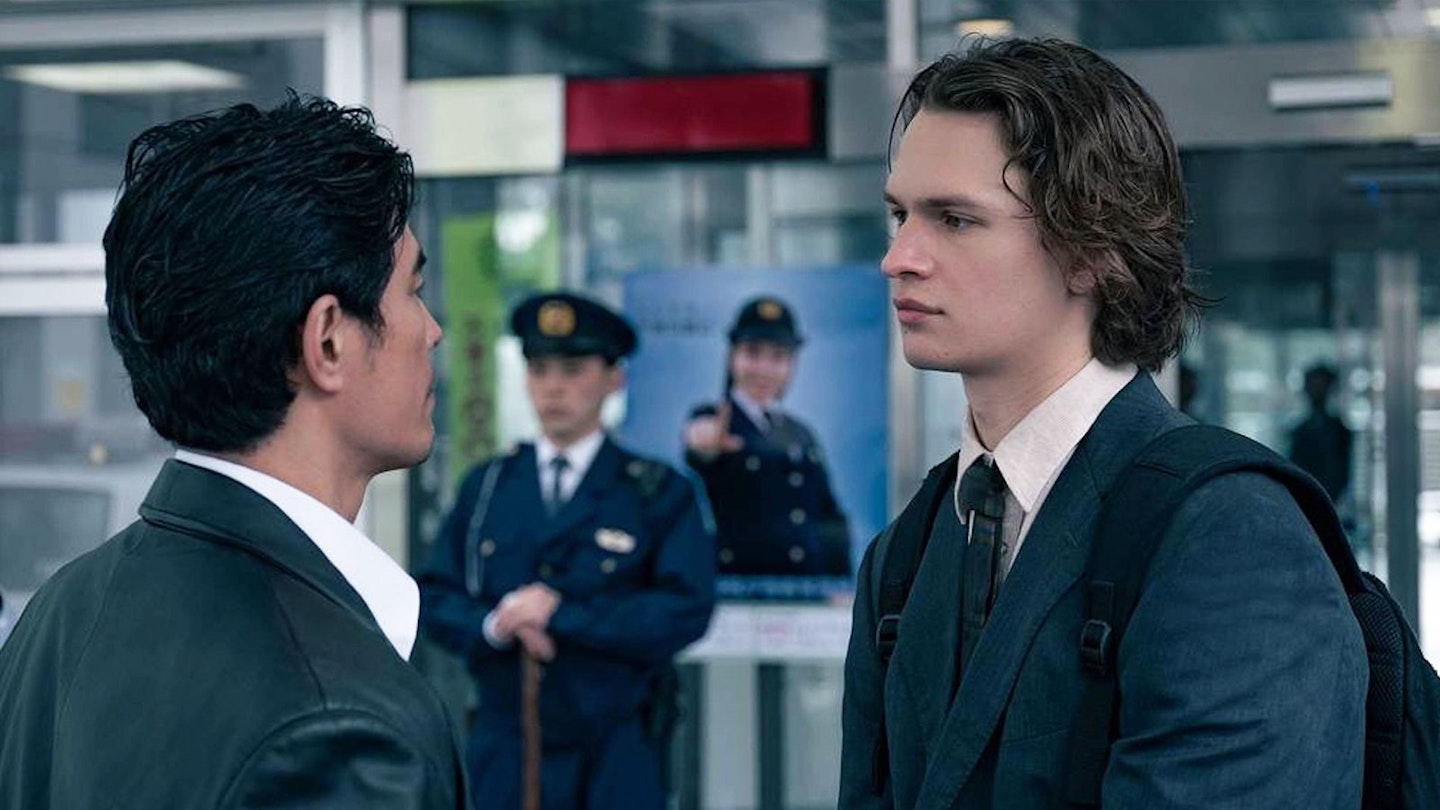Streaming on: Starzplay
Episodes viewed: 2 of 8
The story of an intrepid reporter facing down the malignancy of organised crime is hardly fresh territory. Yet the concentrated power of Tokyo Vice, the new crime series starring Ansel Elgort and Ken Watanabe among a constellation of excellent supporting roles, is such that the material feels lively with intrigue, detail and dark wit. It’s also as visually appealing as it is smart, from the imagery of its opening credits — featuring close-ups of sinuously moving yakuza tattoos — to its pilot episode, which was directed by executive producer and filmmaker Michael Mann.
A shaggy-haired Elgort is Jake Adelstein, a real crime reporter who transferred from the University of Missouri to study in Japan in the ’90s and never left, becoming the first foreign employee of one of Tokyo’s most eminent newspapers, Yomiuri Shimbun. Adelstein’s actual memoir served as the source material for Tokyo Vice, and we get the sense that his employment at the paper was not an initially popular decision. Jake’s boss often scolds him with a shout of, “Gaijin!” (“Foreigner!”) across the newsroom, and he begins there by doing the hack work of a petty crime beat: purse-snatchers, pickpockets and local perverts.

When a fatal stabbing and a recent suicide both seem to have mysterious connective tissue that no-one in authority wants to admit, Jake takes it upon himself to start digging deeper. In that work he meets any number of ambiguous figures, from movie-cool vice cop Miyamoto (Hideako Itô, excellently laconic when he says things like, “There are no murders in Japan”) to an enigmatic detective played by Ken Watanabe, or hard-faced, young yakuza up-and-comer Sato (Shô Kasamatsu), who shares a surprising love for American trainers. What soon becomes self-evident is that publicly admitting the existence of organised crime in Japan is seen as basically unacceptable: so how can a gaijin print it in a newspaper?
Tokyo Vice takes admirable care with the pacing and presentation of its many plot-threads.
In the first episode, Mann’s constantly roving handheld camera follows Jake closely across the neon-slick streets of the city, his flickering cross-cuts suggesting the protagonist’s own darting, active mind. Created and written for television by Tony-winning playwright J.T. Rogers, it allows space for its characters to deliberate and explore, not overstuffing its episodes with the violent spectacle and OTT plot machinations of so many TV crime sagas.
The show excels at depicting Jake’s adopted home of Tokyo not only as a noirish puzzle box — which always risks cartoonishness — but as an ordinary city too, with playfully exchanged insults over sake and noodles. This lived-in, naturalistic feel seems to also help the actors, and Elgort — typically a tad too diffident on screen — radiates a more engaged and thoughtful energy than he has in the past.
Tokyo Vice takes admirable care with the pacing and presentation of its many plot-threads, giving the impression of a story that promises to be vast in scope while never hurrying itself. Instead, in both word and image, it drip-feeds delicious enigma: a misunderstanding that could be cultural difference or intentional deception; a lone, wildly tattooed yakuza looking curiously lost as he watches children in an arcade shoot toy guns; Jake’s passing mention of his coroner father showing him corpses as a kid, leaving the audience with plenty of questions about his upbringing. As the dark tentacles of this story slowly unfurl, they can’t help but enclose the viewer, bringing us ever closer to the ambiguity and monstrousness of the city’s criminal undertow.
